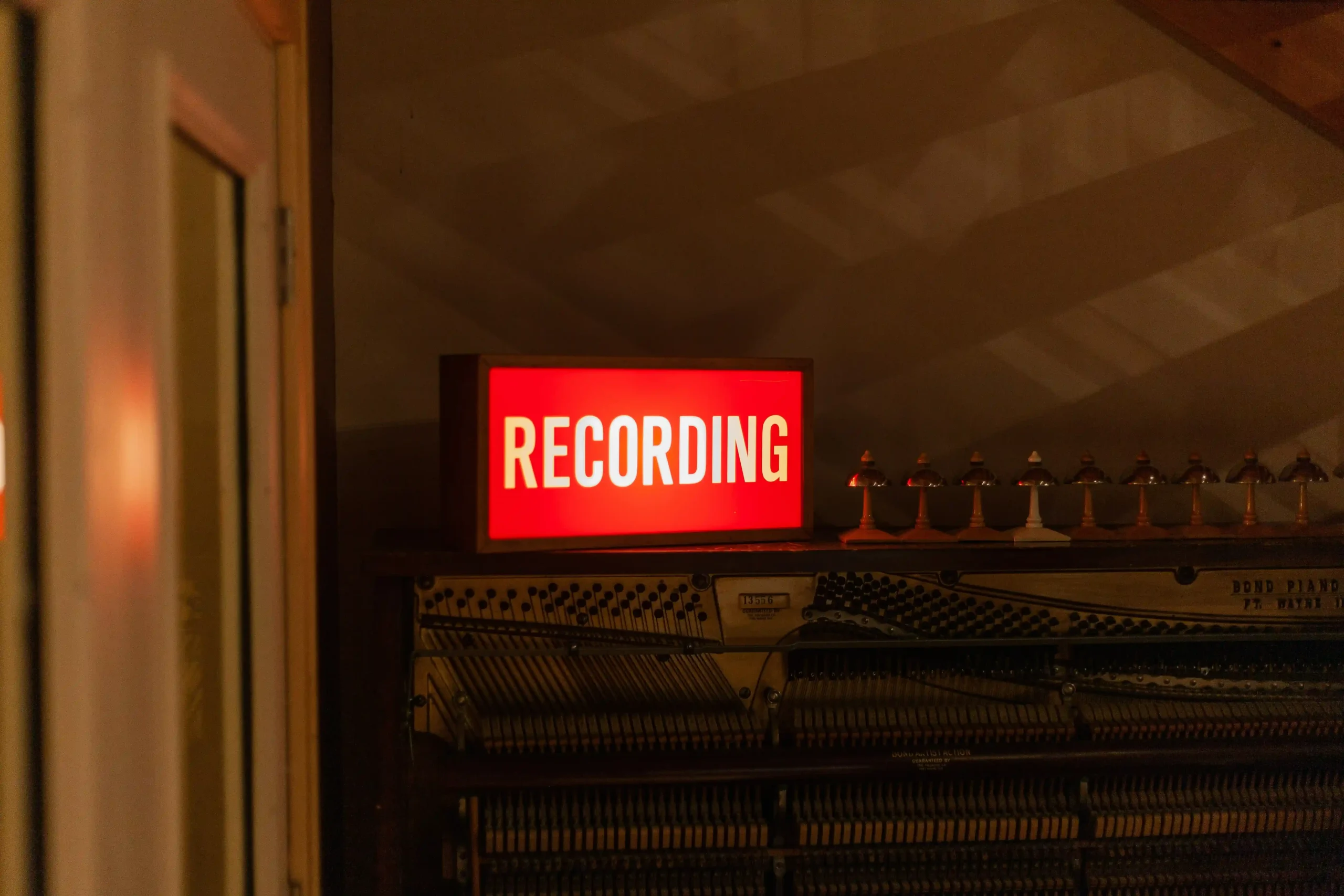In today’s interconnected business environment, call recording has evolved from a luxury to an indispensable tool for modern enterprises. As businesses increasingly rely on digital communication to engage with customers, partners, and internal teams, the ability to accurately capture and analyse these interactions has become crucial. A recent study revealed that 73% of businesses worldwide have implemented an automatic call recorder to enhance their customer service and operational efficiency (Source: Statista, 2022). This statistic underscores the growing recognition of call recording as a key driver of business success.
Imagine a scenario where a customer dispute arises over a service agreement. With a call recording function, businesses can easily retrieve and review the call record in real-time, providing clarity and avoiding costly misunderstandings. Recording business calls offer invaluable insights for employee training, enabling managers to coach staff with real-world examples to ensure consistent service quality.
For UK businesses navigating compliance regulations, call recording is not just a safeguard, it’s a strategic advantage. By capturing every interaction, companies can build trust with their customers, stay ahead of regulatory demands, and foster a culture of continuous improvement.
What are the Key Benefits of Recording Business Calls?
Call record offers a multitude of benefits that can significantly elevate the compliance of UK businesses. One of the most compelling advantages is the enhancement of customer service quality. By recording business calls, businesses can monitor interactions, identify areas for improvement, and ensure that every customer receives a consistent and positive experience.
According to a report by Software Advice, 92% of companies that implemented call recording saw an improvement in customer satisfaction levels within the first year (Source: Software Advice, 2020). This improvement strengthens customer loyalty, drives repeat business, and ultimately boosts the bottom line.
Another crucial benefit is the role of an automatic call recorder in regulatory compliance. UK businesses, particularly those in finance, healthcare, and the legal sectors, must adhere to strict regulations such as GDPR and FCA guidelines. Call recording provides a clear audit trail, helping companies demonstrate compliance and avoid fines. For example, a financial services firm can use recorded calls to verify that all necessary FCA disclosures were made during client interactions, protecting both the company and its clients from potential disputes.
Beyond compliance and customer service, call recording is a powerful tool for employee training and development. Managers can use real calls as training material to illustrate best practices, coach employees on handling difficult situations, and ensure that the team is aligned with the company’s communication standards. This approach improves individual performance and fosters a culture of continuous improvement and excellence within businesses.Call recording aids in dispute resolution, providing a true record of conversations that can be recalled and referenced to resolve conflicts swiftly and fairly. If a customer claims they were promised a certain discount, the company can easily verify the conversation, preventing misunderstandings and maintaining trust.
Ready to transform your communication? Get in touch today!
How Does Call Recording Enhance Compliance and Security in Business Communications?
In an era where data protection and privacy are of paramount importance, call recording plays a critical role in enhancing compliance and security within business communications. For UK businesses, especially those operating in regulated sectors, adhering to stringent regulations like GDPR and FCA guidelines is not just a requirement, it’s a necessity. Call recording provides a robust mechanism to ensure these regulations are met, offering a clear, auditable trail of all interactions that can be referenced during compliance checks.
According to a 2021 survey by NICE, 84% of businesses reported that call recording significantly aided their compliance efforts, particularly in navigating complex regulatory landscapes (Source: NICE, 2021).
Call recording enhances compliance by ensuring transparency and accountability in customer interactions. For instance, in financial services are required to keep records of all client communications, especially those involving transactions or advice. By recording business calls, these businesses can easily demonstrate that they have provided all necessary disclosures and adhered to regulatory requirements, minimising the risk of non-compliance and potential fines. This not only protects the business but also builds trust with clients, who are assured that their interactions are handled with integrity.
Call recording significantly bolsters security by safeguarding sensitive information. Modern call recording systems come equipped with encryption and secure storage features, ensuring that recorded data is protected from unauthorised access. For example, healthcare providers can securely record patient calls while ensuring that all data is encrypted and stored in compliance with GDPR, thus protecting patient confidentiality. In the event of a data breach or security incident, recorded calls can be reviewed to understand the scope of the breach and take corrective actions.
In a world where data breaches and regulatory scrutiny are ever-increasing, call recording is an essential tool for UK businesses. It not only helps meet compliance requirements but also enhances the overall security posture of the business, ensuring that business communications are compliant and secure.
Is your phone system holding you back? Contact us for a smarter option.

Can Call Recording Improve Employee Performance and Training?
Call recording is a powerful catalyst for improving employee performance and training, transforming how businesses cultivate talent and drive excellence. In a landscape where customer interactions are often the cornerstone of business success, the ability to analyse real conversations provides an unparalleled opportunity for growth and development. A recent study by Salesforce found that 86% of employees believe regular feedback is essential for their professional growth, and call recordings offer a rich resource for providing that feedback with precision and relevance (Source: Salesforce, 2020).
By integrating call recordings into the training process, businesses can move beyond theoretical scenarios to real-world examples, allowing employees to learn from actual customer interactions. Imagine a sales team learning from the most successful calls, those that resulted in a conversion, while also analysing less successful ones to identify areas for improvement. This approach enhances individual performance and fosters a culture of continuous learning and development.
For instance, a customer service representative can listen to recordings of challenging objections and receive specific coaching on handling similar situations more effectively in the future. This kind of personalised training is far more impactful than generic advice, leading to faster improvement and greater confidence on the job.
Call recordings enable managers to identify performance trends, as well as pick up on any bad habits and address them proactively. If a pattern of misunderstandings or compliance issues emerges, managers can use recorded calls to pinpoint the root cause and implement corrective measures, whether through additional training or process adjustments. This not only improves individual employee performance but also enhances overall team efficiency and effectiveness.
Beyond individual coaching, call recordings can also be used to create a library of best practices, which can be shared across the organisation. New employees can be onboarded more quickly and effectively by learning from the successes and challenges of their peers, accelerating their path to full productivity. In today’s competitive business environment, where customer experience is a key differentiator, leveraging call recordings for employee performance and training is not just beneficial, it’s transformative. It empowers employees to deliver their best work, enhances team performance, and ultimately drives the success of the business.
Need a more efficient phone system? Contact us to learn more.
How Does Call Recording Support Customer Satisfaction and Dispute Resolution?
Call recording is a pivotal tool in elevating customer satisfaction and streamlining dispute resolution, two critical elements of a thriving business. In an age where customer experience is the ultimate differentiator, the ability to accurately capture and review interactions provides businesses with a powerful advantage.
According to a recent report by Microsoft, 90% of customers say that the service they receive is as important as the products or services themselves, underscoring the need for businesses to get it right every time (Source: Microsoft, 2021). Call recording enables businesses to meet this expectation by ensuring that every customer interaction is handled with care and precision.
When a customer issue arises, the ability to swiftly access a recorded conversation can transform a potential conflict into an opportunity for resolution. For example, if a customer disputes the terms of an agreement or claims they were promised a specific offer, a recorded call can be reviewed to provide clarity. This not only resolves the dispute efficiently but also helps maintain the customer’s trust, as they see the business as transparent and fair. In many cases, simply knowing that calls are recorded can deter disputes from escalating, as both parties are aware that there is a verifiable record of the conversation.
Beyond dispute resolution, call recording significantly contributes to overall customer satisfaction by enabling continuous improvement. By analysing recorded calls, businesses can identify common pain points and areas where service can be enhanced. For instance, if recurring issues are identified in customer feedback, these can be addressed directly with the relevant teams, leading to improvements in processes and training that directly benefit the customer experience. This proactive approach helps in resolving existing issues and in preventing future ones, thereby increasing customer loyalty and satisfaction.
Moreover, call recordings can be used to celebrate and replicate successful interactions. When a customer leaves a glowing review following an excellent service experience, that interaction can be studied and used as a benchmark for training other team members. In this way, call recording doesn’t just resolve disputes, it helps create a consistent, high-quality customer experience that keeps clients coming back.
In today’s customer-centric market, where every interaction counts, call recording is an indispensable tool for enhancing satisfaction and efficiently resolving disputes, ultimately contributing to long-term business success.
Wondering how circle.cloud can transform your business? Get in touch for a consultation.

What Should UK Businesses Consider When Implementing Call Recording?
Implementing call recording is a strategic move that can offer UK businesses significant advantages, but it requires careful consideration to ensure success and compliance. First and foremost, businesses must navigate the complex landscape of legal requirements. Under the General Data Protection Regulation (GDPR) and the UK Data Protection Act, businesses are obligated to inform all parties that their calls are being recorded and to obtain explicit consent.
Failure to comply with these regulations can lead to severe penalties, with GDPR fines reaching up to 4% of annual global turnover or €20 million, whichever is higher (Source: GDPR.EU, 2020). Therefore, businesses need to have clear and transparent policies in place, not only to meet legal obligations but also to build trust with customers and employees.
Beyond legal compliance, data security is another critical factor to consider. Call recordings often contain sensitive information, such as personal data, financial details, or confidential business discussions. To protect this data, businesses must implement robust encryption and secure storage solutions, ensuring that recordings are only accessible to authorised personnel.
For example, a healthcare provider must ensure that all recorded patient interactions are securely encrypted and stored in compliance with healthcare-specific regulations like the NHS Data Security and Protection Toolkit. This level of security not only safeguards against data breaches but also reinforces the company’s commitment to privacy and security, fostering customer confidence.
Furthermore, businesses should also consider the scalability and integration of their call recording solutions. As a company grows, so too will the volume of recorded calls. A scalable solution that seamlessly integrates with existing customer relationship management (CRM) systems, for example, can streamline access to recordings and enhance overall efficiency. This integration allows businesses to link call recordings directly with customer profiles, providing a comprehensive view of customer interactions and enabling more personalised service.
Finally, businesses should focus on training and support for staff. Employees need to understand the purpose of call recording and how it benefits both them and the customers. Providing training on legal requirements, data handling, and best practices will ensure that the implementation is smooth and that everyone in the business is aligned with the company’s goals.
In conclusion, while the implementation of call recording offers substantial benefits, UK businesses must carefully consider legal, security, and operational factors to maximise its effectiveness and ensure compliance.
Ready to upgrade? Contact us now and explore your options.
Is Call Recording the Right Choice for Your Business?
In today’s fast-paced and highly regulated business environment, call recording is not just an option; it’s a strategic necessity. Whether your goal is to enhance customer service, ensure compliance, improve employee training, or protect your business from potential disputes, call recording offers a powerful solution. A 2021 survey by Deloitte found that 74% of businesses using call recording reported improved operational efficiency and customer satisfaction (Source: Deloitte, 2021). This statistic highlights the transformative impact that call recording can have across various aspects of your business.
Imagine a customer service team that can access real-time insights from recorded calls, enabling them to resolve issues faster and more effectively. Or consider the peace of mind that comes from knowing your business is fully compliant with regulatory requirements, with a secure, auditable record of every interaction.
For UK businesses looking to stay ahead in a competitive market, call recording is more than just a tool; it’s a critical component of a forward-thinking strategy. By implementing a thoughtful and compliant call recording system, you can unlock new levels of performance, security, and customer satisfaction, positioning your business for long-term success in a rapidly evolving digital landscape.
Ready to transform your business with the power of call recording? Contact us today to discover how circle.cloud can tailor solutions to elevate your customer service, ensure compliance, and drive your business forward. Let’s start the conversation and take your telecom strategy to the next level!
Want to find out more about the circle.cloud experience? Check out our customer testimonial videos over on our YouTube channel!
